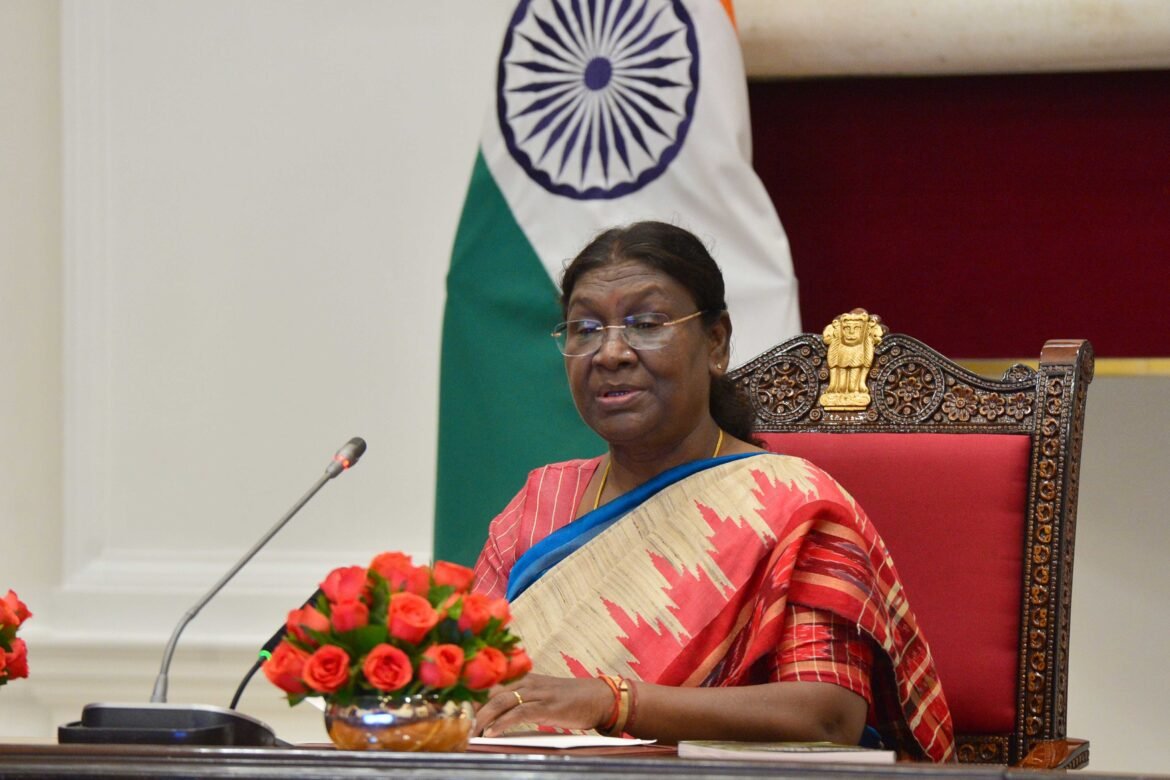President rule revoked in J&K following elections to form government, marking a significant political shift in the region. The Ministry of Home Affairs (MHA) issued an official order on Sunday, October 13, 2024, announcing the end of the five-year-long President’s Rule in Jammu and Kashmir. This decision clears the way for the formation of a new government in the Union Territory, following the recently concluded elections.
The revocation of President’s Rule comes as the National Conference (NC)-Congress alliance, led by Omar Abdullah, secured a majority in the Jammu and Kashmir Legislative Assembly. With the order in place, the new government is expected to be sworn in the coming week, marking the first elected government in the region in seven years.
End of President’s Rule in J&K
President rule revoked in J&K following elections to form government, as per the official gazette notification issued by the Ministry of Home Affairs. The order, signed by President Droupadi Murmu, states that the central rule imposed in 2019 after the abrogation of Article 370 has been lifted. The move signals a return to normalcy in the political landscape of Jammu and Kashmir after years of central governance.
The official order referenced Section 73 of the Jammu and Kashmir Reorganisation Act, 2019, along with Articles 239 and 239A of the Indian Constitution. It revoked the earlier imposition of President’s Rule, which had been in place since October 31, 2019, following the abrogation of the region’s special status under Article 370 on August 5, 2019.
Central rule had been imposed in the erstwhile state since June 2018, when the Bharatiya Janata Party (BJP) withdrew support from the People’s Democratic Party (PDP)-led government, prompting the resignation of Chief Minister Mehbooba Mufti. Since then, Jammu and Kashmir had remained under the direct control of the central government until this week.
Government Formation After 7 Years
President rule revoked in J&K following elections to form government, bringing an end to a seven-year period without an elected government. The National Conference (NC), led by Omar Abdullah, emerged as the clear winner in the recently held Assembly elections, securing 46 out of the 90 seats, with additional support from Congress, the Communist Party of India (Marxist), the Aam Aadmi Party (AAP), and independent members.
This marks a major political development, as the region prepares for its first democratic government since 2017. Omar Abdullah, who has been selected as the leader of the NC legislative party, is set to become the next Chief Minister of Jammu and Kashmir. He met with Jammu and Kashmir’s Lieutenant Governor, Manoj Sinha, on October 11, to submit letters of support for forming the government. Abdullah is expected to take the oath of office in the coming week, with the swearing-in ceremony likely to take place by Wednesday.
A New Government in Jammu and Kashmir
President rule revoked in J&K following elections to form government, setting the stage for Omar Abdullah to lead the new administration. Abdullah expressed his excitement about forming a government and pledged that both Jammu and Kashmir regions would receive equal attention. “All I want to say is that Jammu will not be ignored in this government,” he stated after his meeting with the Lieutenant Governor.
Omar Abdullah also indicated that the process of government formation would be completed within a few days, allowing for the formal swearing-in ceremony by mid-week. He acknowledged the complexity of the transition from central rule to local governance, but remained optimistic about the future of the region under democratic leadership.
Role of National and Regional Parties
The recent elections in Jammu and Kashmir saw a broad coalition forming to support the National Conference-led government. The Congress party, the Communist Party of India (Marxist), and the Aam Aadmi Party (AAP) all expressed their support for Omar Abdullah’s leadership. AAP, in particular, submitted a formal letter to the Lieutenant Governor’s office, confirming its backing of the NC-led coalition.
This coalition is significant in ensuring a stable government that can address the needs of the region after years of political uncertainty. The involvement of national and regional parties also highlights the importance of Jammu and Kashmir in India’s larger political landscape.
Conclusion
President rule revoked in J&K following elections to form government, marking a return to democratic governance in the region after a prolonged period of central control. The National Conference’s victory and the formation of a new government led by Omar Abdullah offer hope for political stability in Jammu and Kashmir. As the swearing-in ceremony approaches, the region looks forward to the restoration of elected leadership, setting the course for renewed development and progress in the Union Territory.
Stay connected to know more on arcnews.online for global news like President Rule Revoked in J&K Following Elections to Form Government. For videos updates visit our YouTube. Do subscribe to Arcnews to get latest updates directly in your mail box.
Have A Great Day.


